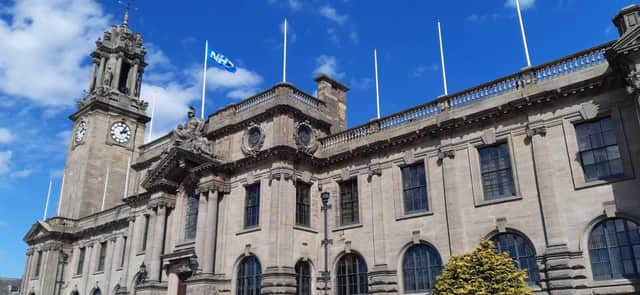South Tyneside leaders commit to tackling modern slavery


The term modern slavery covers offences in the Modern Slavery Act (2015) which result in the deprivation of a person’s liberty, by another, to exploit them for personal or commercial gain.
This can include debt bondage, human trafficking, forced labour and people being traded as a property or commodity, as well as employers ‘owning’ employees.
Advertisement
Hide AdAdvertisement
Hide AdThere have been a number of high-profile cases in the UK in recent years, including in the North East.
This week, South Tyneside Council’s cabinet were asked to endorse and approve the publication of a Modern Slavery Statement for 2020/21.
The document, which is required to be published every year, sets out the efforts undertaken to “manage and minimise” the risks of modern slavery within the council and its supply chain.
Councillor Joanne Bell, cabinet member for resources and innovation, introduced a report on the Modern Slavery Statement at a cabinet meeting on Wednesday, December 1.
Advertisement
Hide AdAdvertisement
Hide Ad“Modern slavery, the illegal exploitation of people for personal gain, is a blight on humanity and it’s everyone’s business to recognise and prevent,” she said.
“Unfortunately slavery can and does happen anywhere, and could be all across the UK and unfortunately in and around South Tyneside.
“One of the reasons modern day slavery can be so hard to tackle is that it is so often hidden and involves people of all ages, genders, ethnicities and nationalities.
“It can take many forms from forced labour to domestic servitude and sexual and criminal exploitation.
Advertisement
Hide AdAdvertisement
Hide Ad“It often happens in broad daylight in ordinary looking houses and respectable seeming businesses.
“As a council we recognise that we have a number of opportunities to contribute in the fight against modern slavery.
“As well as our duty to prevent potential risks of slavery in our supply chains, we also have other important roles including ensuring our staff are able to recognise and report slavery, protecting at-risk children and adults and working with partners to respond to, or discourage, potential slavery and engaging with our community about this threat.”
The annual report was developed by the South Tyneside Modern Slavery Steering Group and outlined the work South Tyneside Council had undertaken in the most recent financial year around the modern slavery agenda.
Advertisement
Hide AdAdvertisement
Hide AdThis included efforts to mitigate risks in its supply chain and ensuring modern slavery was a common theme in its procurement strategy, as well as establishing a network of ‘exploitation champions’ across Children’s Services.
In addition, digital training has been rolled out to help council staff spot the potential signs of modern slavery.
The refreshed Modern Slavery Statement was also structured to align with the council’s Modern Slavery Strategy and action areas.
This includes identifying and responding to modern slavery, supporting potential victims, wider prevention work and engaging with residents and partners.
Advertisement
Hide AdAdvertisement
Hide AdCouncillor Joan Atkinson, deputy leader of the council, welcomed the report and added the local authority would “remain vigilant with this potential problem.”
The Modern Slavery Statement can be found on South Tyneside Council’s website at www.southtyneside.gov.uk